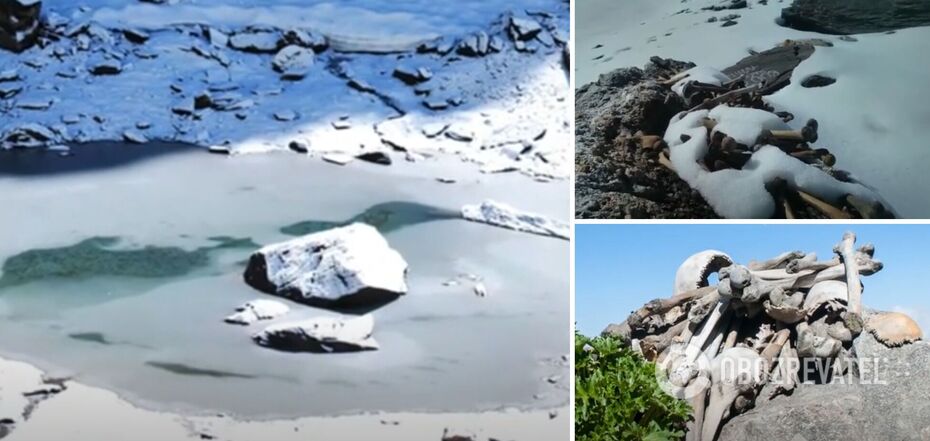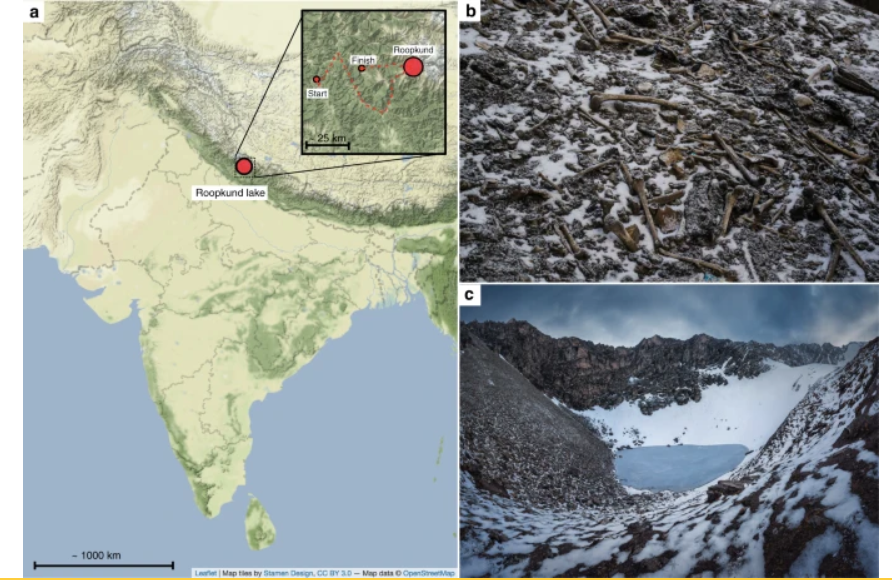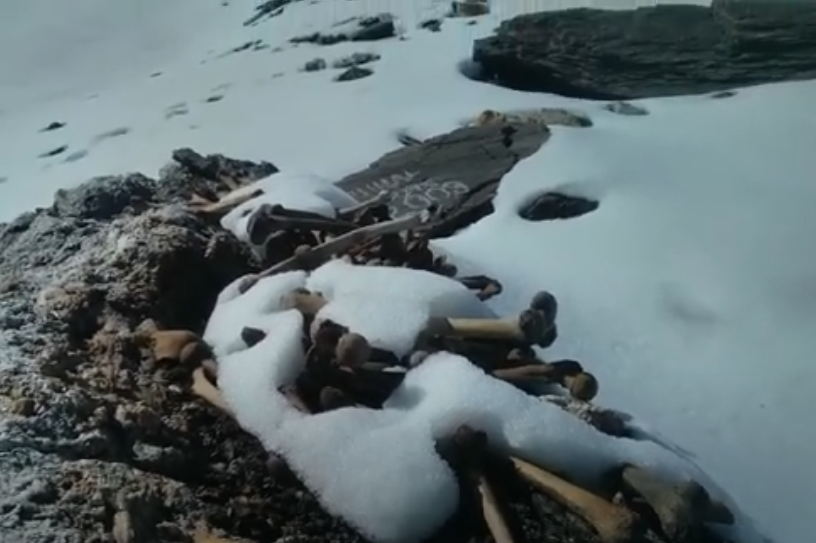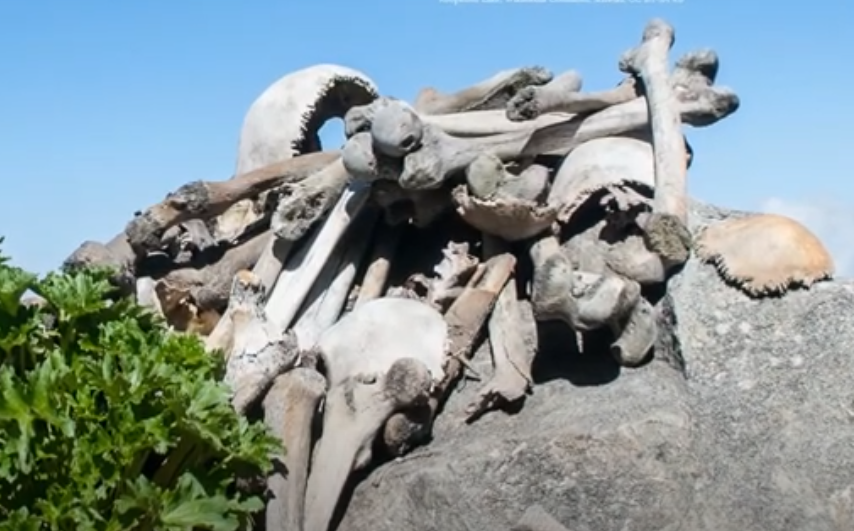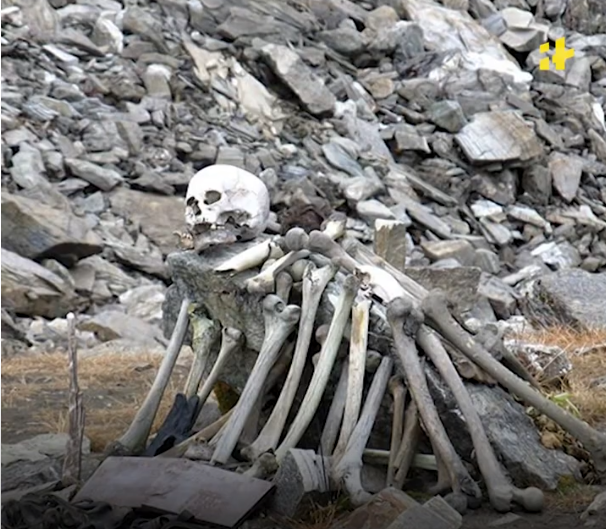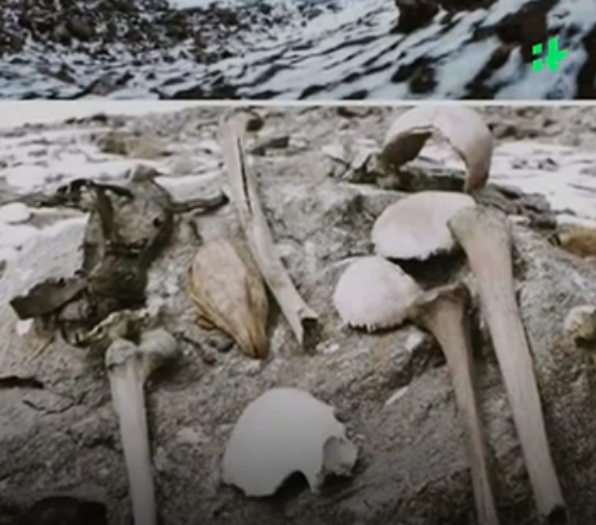News
"Lake of Bones". Hundreds of human skeletons found in the Himalayas at an altitude of 5000 meters: where did they come from
Lake Roopkund in the Indian state of Uttarakhand, bordering Nepal, has been a fascinating mystery for researchers ever since a forester stumbled upon it. Hundreds of skeletons lie among the snow-capped peaks of the Indian Himalayas, but no one has any idea where the gruesome human remains came from.
The eerie scenes unfold only one month of the year at the stunning incline of about 5,000 meters when the cold waters of the lake melt enough to peer into. The bones become visible as the temperature rises and the snow melts, writes The Sun.
Researchers estimate that there are about 500 human remains there, and are still searching for an explanation of what left them in this icy, uninhabitable part of the South Asian country. The mystery of the Himalayan reservoir is made even more terrifying by its conditions, which are so harsh that tourists have to walk for five days to overcome them. The difficulty of traveling hints to scientists that there may be undiscovered bodies near the lake.
One popular theory is that the eerie scenes, first spotted by a British ranger in 1942, stem from some sort of pilgrimage calamity. The remains likely come from pilgrims, as the stunning lake is part of the route for the Nanda Devi Raj Jat, which is still observed by followers of the polytheistic religion who pass through the eerie site.
Indian mythology says that King Jasdhaval of Kannauj took his dancers and his pregnant wife to Rupkund to visit the Nanda Devi sanctuary, a temple that is approximately a thousand years old. The group was allegedly caught in a violent storm and hail so fierce that they all died by the lake, slowly turning into skeletons.
Other theories suggest that the dead were locals returning from the war or invaded by the Japanese. However, scientists have not confirmed this version after analyzing the DNA of 37 gruesome skeletons. The study, published in the journal Nature Communications, found that most of them died about 1000 years ago, but not necessarily at the same time.
Surprisingly, they found that some of the people may have died as early as the 19th century. The discrepancy in time indicates that this may not have been a large-scale disaster, but a series of mysterious deaths that occurred over the centuries.
Another surprising fact is that the vast majority of their DNA comes from the Mediterranean Sea, thousands of miles away from the Indian mountains.
"This may be an even bigger mystery than before. It's incredible because the type of ancestry we find in about a third of people is so unusual for this part of the world," Harvard geneticist David Reich commented. He explained that the remains could have been scattered throughout the area and fallen into the lake during landslides over time.
But Kathleen Morrison from the Department of Anthropology at the University of Pennsylvania clarifies that the Greek kingdom existed on the Indian subcontinent for about 200 years, starting in 180 BC. And, in her opinion, the fact that there is some unknown group of Mediterranean Europeans is not a big discovery: "Maybe they were collected there because the locals dumped them in the lake. When you see a lot of human skeletons, it's usually a cemetery," the scientist says.
Only verified information is available on the OBOZ.UA Telegram channel and Viber. Do not fall for fakes!


